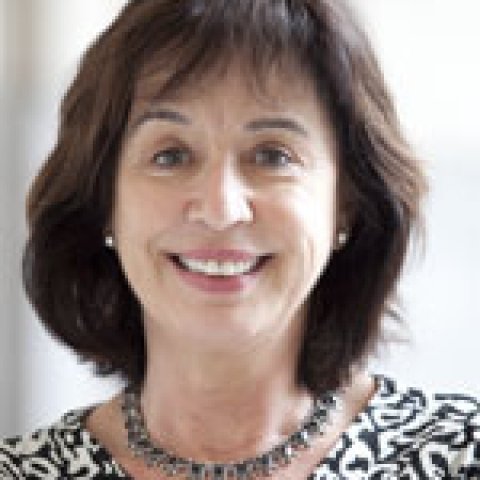Jacqueline Maria Hagan
Fellow
Professional Affiliation
Professor, Department of Sociology, University of North Carolina at Chapel Hill
Expert Bio
Born in Chile to parents of different nationalities, and as the daughter of a career diplomat, I developed early on a personal and intellectual interest in the topic of international migration. After receiving my Ph.D. from the University of Texas at Austin in 1990, I moved to the University of Houston, where I co-directed the Center for Immigration Research from 1995-2005. In 2005, I joined the faculty at the University of North Carolina at Chapel Hill. Most of my research focuses on the social, economic and political implications of migration from Latin America to the United States. I have conducted fieldwork in established migrant receiving communities in Texas and new destination communities in North Carolina and their sending counterparts in Mexico, Guatemala, Honduras, and El Salvador.
My first book, Deciding to be Legal (Temple University Press, 1994) investigated the settlement and development of a Maya community in Houston and its response to immigration reform, namely the Immigration, Reform and Control act of 1986. My second book, Migration Miracle (Harvard University Press, 2008) traced the institutional and personal role of religion and spirituality in the migration journey from Central America to the United States. I am ongoing collaborator (with Nestor Rodriguez and Karl Eschbach) on the study of deaths of undocumented migrants during their journey to the United States. I have written extensively on the effects of recent U.S. immigration reform initiatives on the rights and opportunities of immigrants and their families in the United States and co-directed a project on treatment and detention of persons deported from the United States. My most recent research, which will be the basis of my book project at the Wilson Center, examines the ways in which migrants with low levels of education acquire and transfer on-the-job technical and cultural skills across borders to navigate pathways to economic mobility. I am also in the early stages of drafting a comparative research proposal that would expand my research on religion and migration to the Africa-EU migratory system. The proposed research project will examine and compare the ways in which inter-religious and religious-secular communities mediate migrant and refugee flows from Africa to the European Union and from Latin America to the United States.
Education
B.A., Sociology, George Washington University; M.A., Sociology, The University of Texas at Austin; Ph.D., Sociology, The University of Texas at Austin
Wilson Center Project
“Skills on the Move: Re-Examining the Relationship between Human Capital and Social Mobility in Reference to Migration between Mexico and the United States.”
Project Summary
I propose to draft a book on skill transferability and economic mobility among Mexican migrants and return migrants. The research is based on findings from 600 in-depth interviews with migrants and return migrants, a select number of employer interviews and work site observations. The cross-border research in the United States and central Mexico challenges two assumptions: that traditional human capital measures accurately reflect skills and that immigrants with low levels of education experience blocked mobility.
The research offers a sociological alternative for understanding processes of skill acquisition and economic mobility among immigrants and return migrants. The central premise is that migration is more than just a strategy to earn wages; for many labor migrants it is also a way to learn skills on the job and gain work experience that can then be used to navigate labor markets and increase social mobility in the United States and in other countries. Moreover, we argue that the learning of skills is a social process that is embedded in social relations and labor markets on both sides of the migratory stream. Collecting migrant work histories and observing work practices on both sides of the border enable us to better conceptualize and measure total human capital and its relationship to international migration and economic mobility.
This cross-border project has implications for existing models of immigrant labor market incorporation. The research points to the limitations of human capital models that rely on easily visible and measurable, country-specific skills, such as education and language ability, to explain immigrant labor market outcomes, while largely ignoring harder-to-measure aspects of work experience, especially non-formal on-the-job learning. The research also has policy implications. Currently, U.S. immigration policies explicitly give preference to “skilled” immigrants who rank high on traditional human capital attributes, while restricting the entry of “unskilled” migrants, thereby denying the skills they bring with them to U.S. labor markets. Our research also suggests that the Mexican government would be well served by developing reintegration programs that tap into the enhanced skill sets of return migrants.
Major Publications
- “Skills on the Move: Rethinking the Relationship between Human Capital and Immigrant Labor Market Incorporation.” (with Nichola Lowe and Christian Quingla) Work and Occupations 38 (2): 149-178.
- Migration Miracle: Faith, Hope, and Meaning on the Undocumented Journey. (Harvard University Press 2008).
- “U. S. Deportation Policy, Family Separation, and Circular Migration,” (with Karl Eschbach and Nestor Rodriguez.” International Migration Review 42(2): 64-88 (2010).
- “Social Networks, Gender and Immigrant Settlement: Resource and Constraint.” American Sociological Review. 63 (1): 55-67. (1998).
- Deciding to be Legal: A Maya Community in Houston. (Temple University Press. 1994).
Insight & Analysis by Jacqueline Maria Hagan
- Past event
- Migration
Book Launch: "Living Illegal, The Human Face of Unauthorized Immigration"


